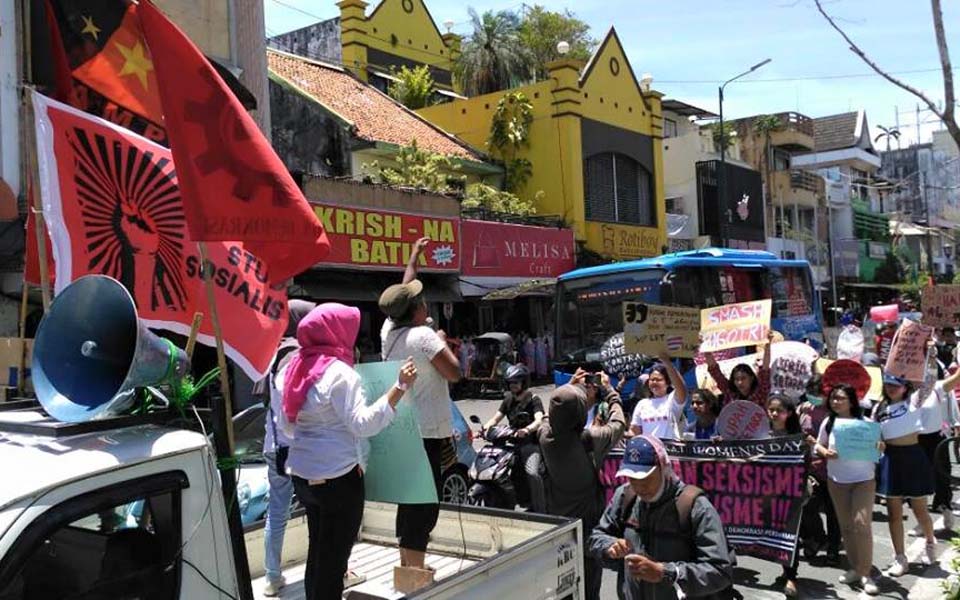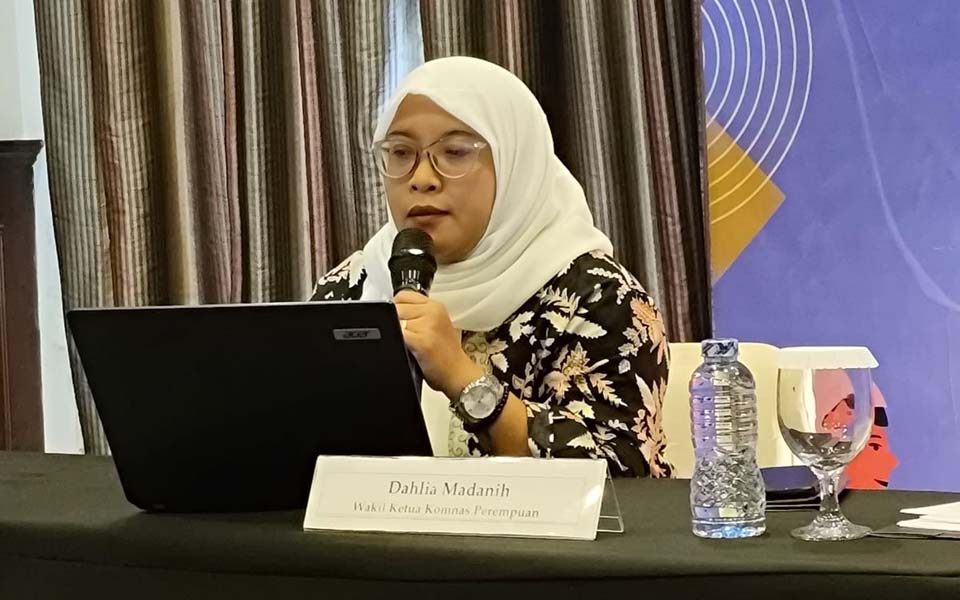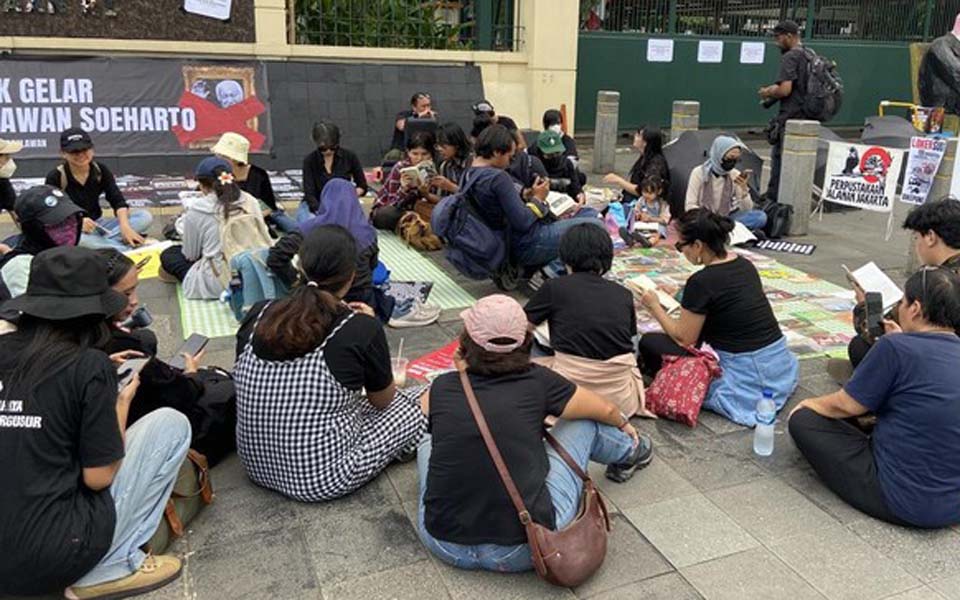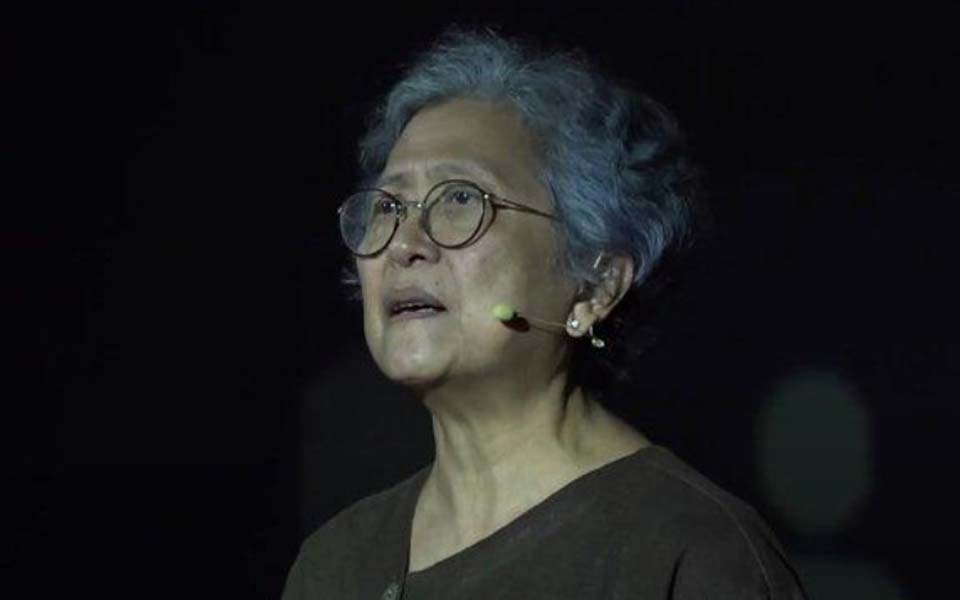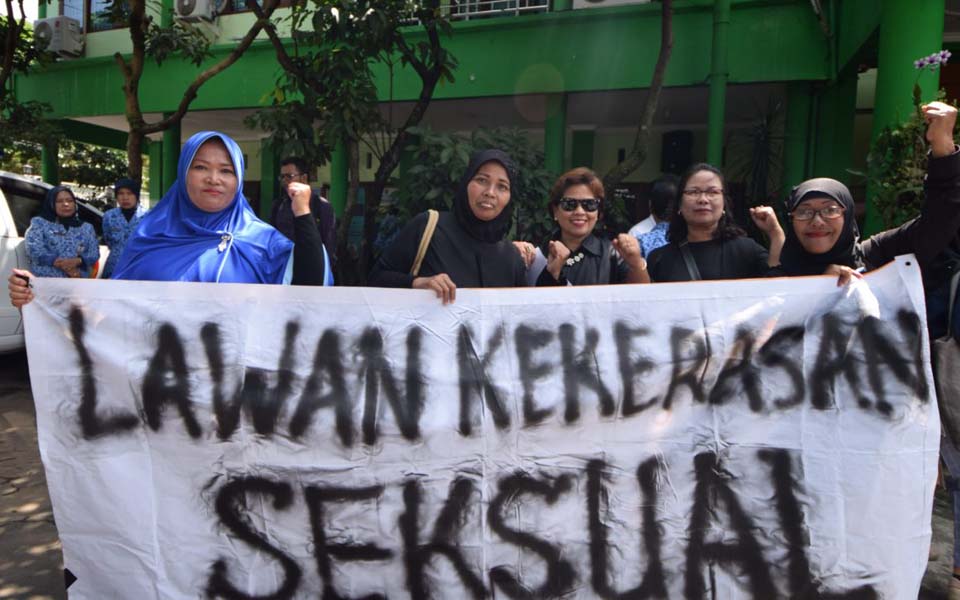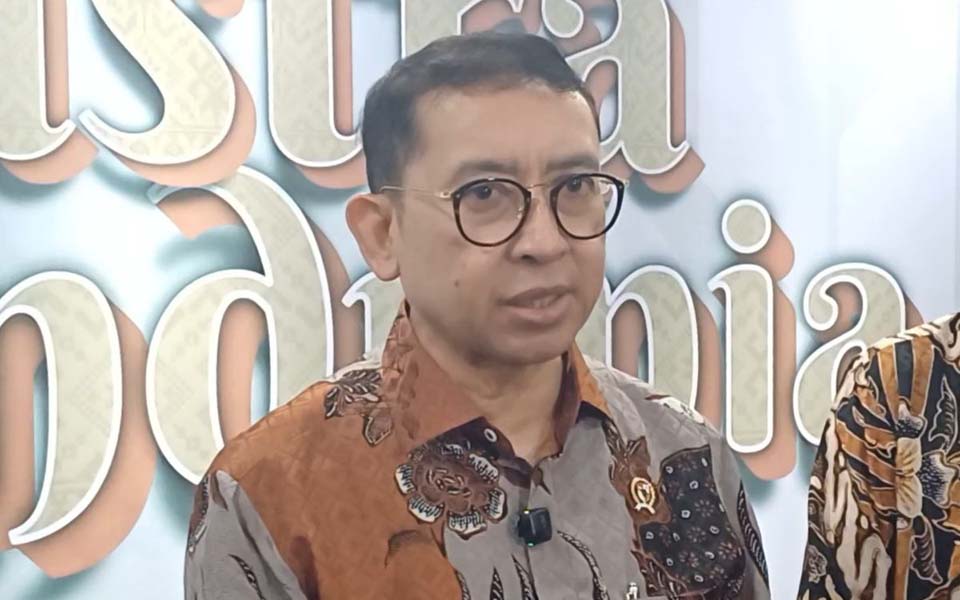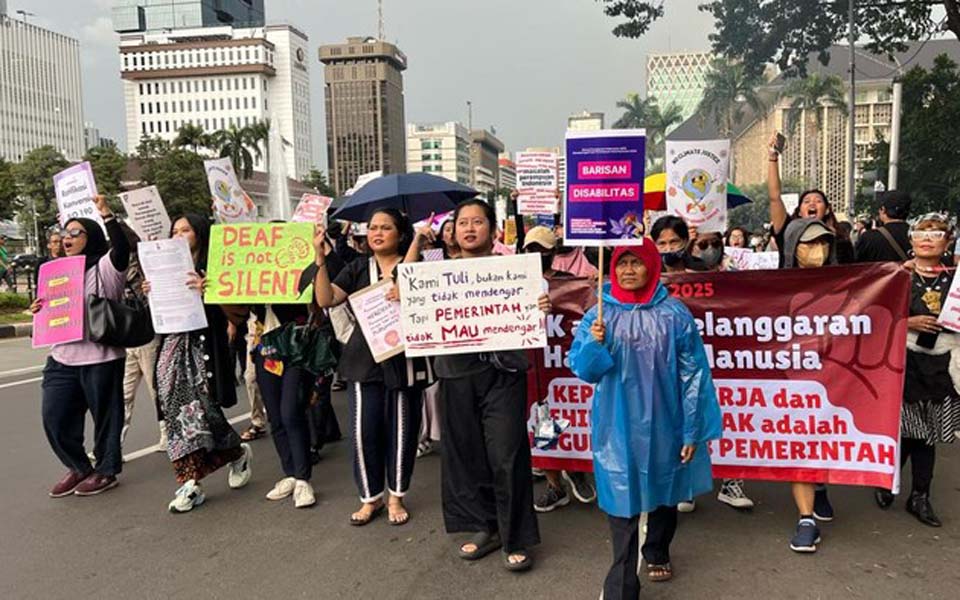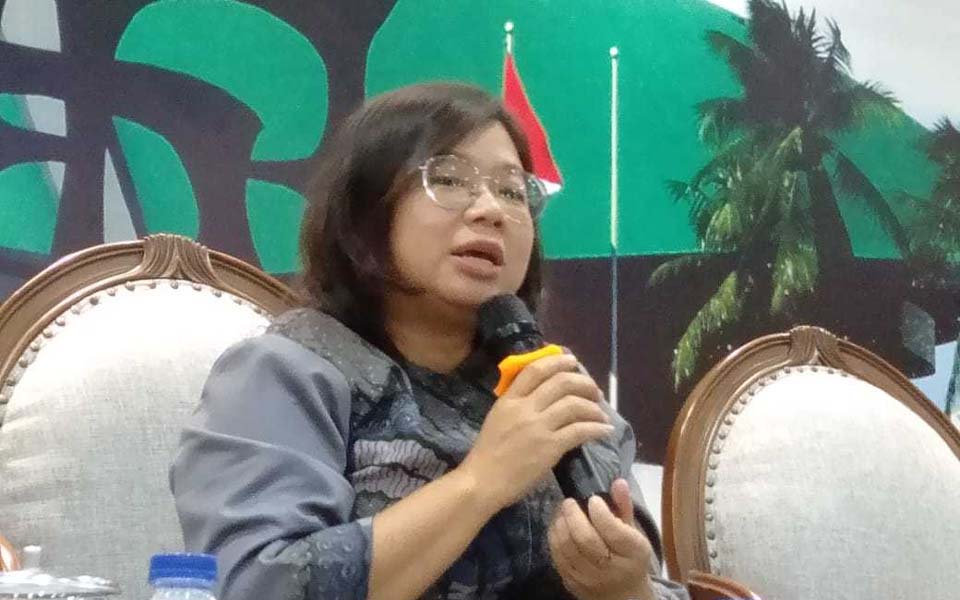In the home and in the streets, women are being raped. The government and the parliament are ignoring cases of rape and are complicit in sexual violence against women.
According to data from the National Commission on Violence Against Women (Komnas Komnas), between 1998 and 2010 rape was the most common form of sexual violence, involving as many as 4,845 out of a reported 8,784 cases. And more than three-quarters of all incidents of sexual violence, as many as 70,115 out of 93,960 cases, were committed by individuals close to the victims such as fathers, husbands, older brothers and boyfriends. This makes us realise that being around the people closest to them is no guarantee that women can avoid sexual violence.
The other thing that becomes clear from this data is that sexual violence against women is also widespread in the public domain. According to the Jakarta Metro Jaya regional police, there was a 33 percent increase in incidences of rape on city pubic transport, rising from 60 cases in 2010 to 68 cases in 2011.
Even in the Cakung Nusantara Bonded Zone in North Jakarta -- where women make up the majority of workers -- women are often confronted with sexual harassment. This ranges from being called “beautiful” or “pretty” in a manner that has sexual undertones (flirtation) on the street to promotions being contingent on providing “sexual favours” to superiors. These two examples are but just a few from the unsafe working conditions that are endured by women in Indonesia.
We must not forget also, the cases of mass-rape that occur in conflict areas. When former President Suharto and the military seized power in 1965, there were 1,192 cases of sexual violence recorded against women alleged to be involved in the Indonesian Communist Party or its affiliated mass organisation. At least 85 ethnic Chinese women were raped – in some cases in front of their families – during the May 1998 riots in Jakarta. Sexual violence is also used against women workers with one of the most infamous cases being that of labour activist Marsinah who was raped and killed by the military (TNI) in 1994. Sexual violence against women in Papua is ongoing to this day. The TNI, the state institution that played the biggest role in these cases of sexual violence, both as individual perpetrators and as an institution, has never been held responsible for these crimes. The Indonesian government, including the current administration of President Susilo Bambang Yudhoyono, has ignored these cases of sexual violence against women and not one case has ever gone to trial.
The narrow definition of rape under Article 285 of the Indonesian criminal code, which only defines rape as forced sexual intercourse (penetration of the sexual organs), results in difficulties in pursuing rape cases through the legal system. Moreover some 154 regional bylaws have been enacted that discriminate against women and reinforce the stigma that sexual violence is the fault of the women.
The patriarchal social conditions in Indonesia, which place women in a position that is second-class or inferior to men (meaning their rights as human beings are not considered equal to men), results in women being particularly vulnerable to sexual violence. Women are not considered to have rights over their own bodies. Women’s bodies are not considered the property of women, but the property of husbands or their male partners, society and the state. This also results in cases of sexual violence being difficult to expose because the victims are afraid of being socially condemned or that the sexual violence they suffer will be deemed as being their own fault because their behavior is not in accordance with prevailing society values.
The domestication of women, which sees women as primarily responsible for the household and restricts women’s activities in the public domain, also makes it difficult for women to organise to fight sexual violence, particularly violence committed by people close to them in the home. Because of this therefore, it is time for women to leave the home and build independent organisations and movements to unite and fight sexual violence and build a government that is democratic, just and promotes equality for women.
In commemorating International Women’s Day this year, the KNPM is calling for:
1. The state to fully investigate cases of rape, including past sexual crimes committed by the TNI;
2. The revocation of all bylaws and policies that discriminate against women;
3. The provision of justice and rehabilitation to victims of sexual violence;
4. An end to all forms of negative stigmatisation against victims of sexual violence.
It is time for women to leave the home, build independent organisations and movements to bring about a government that is democratic, just and promotes gender equality.
Don’t blame the victim! Indict, try and jail the perpetrators of rape!
Jakarta, March 4, 2012
Free Women National Committee (Komite Nasional Perempuan Mahardhika)
National Secretary
Dian Novita
[Pernyataan Sikap Pra kondisi Hari Perempuan Internasional 2012 – Komite Nasional Perempuan Mahardhika. Jakarta, 4 Maret 2012. Slightly abridged translation by James Balowski.]





